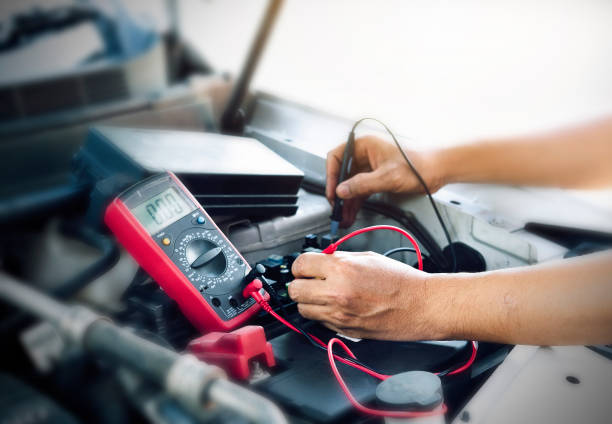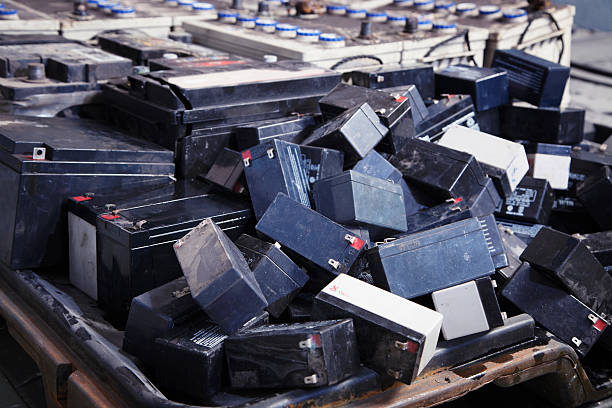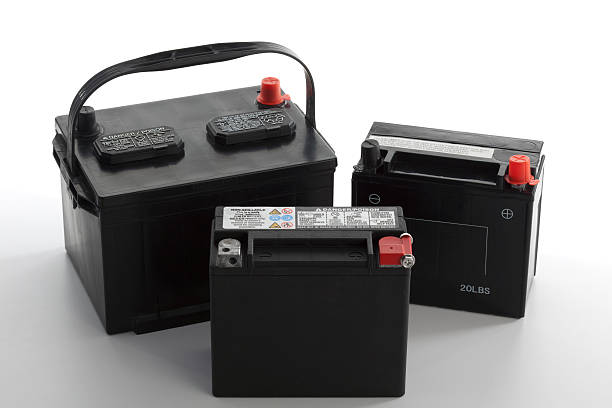Traditional car batteries can cost as little as $60 for a short-life battery or as much as $300 for a high-performance battery, depending on what you need. Batteries can represent a recurring portion of maintenance when estimating the overall cost of owning a car because they have different life spans and their prices can vary.
How Much Does a Car Battery Cost?
However, we only consider it when we need to purchase a new battery. When compared to the cost of maintaining other car parts, replacing a car battery is relatively inexpensive. A replacement car battery ranges in price from $45 to $250, depending on its power, size, and quality. Have your nearby dealership, auto parts store, or auto service facility check out the current battery. If necessary, they might suggest a replacement.
Costs for the most popular lead-acid battery range from $125 to $135. Another choice is the AGM (absorbent glass mat) battery. This battery type will set you back about $200 because it powers the more sophisticated electronics in luxury vehicles. Longer-lasting batteries cost more to purchase. Installing a car battery may cost a mechanic $10 to $100. The charge is based on where the battery is located and how quickly it can be changed.
Things You Should Know About Car Battery Price
Capacity and Size of Car Battery
Your battery’s total price is significantly influenced by its capacity. For instance, different car sizes are available on the market, and each one is equipped with a battery that is appropriate for its operation. Therefore, the cost will be established once you are aware of the size and capacity requirements for the battery.
Battery Standards
There are two common battery types: the European Standard (DIN) and the Japanese International Standard (JIS). Remember that European-standard batteries will cost you more money than Japanese-standard batteries. Having said that, even when the capacity and standard are the same, the prices often differ significantly.
Technology Used
Modern batteries come in a wide variety, and those that feature the newest technology will cost you more than conventional batteries.
Warranty
We advise you to check your battery’s warranty before going to get it replaced. If you’re lucky, you’ll find a reasonable warranty date that can help you save a lot of money on the battery’s overall cost.

Battery Type
The battery type that your car uses should be noted first. There’s a good chance you’ll see the battery type and the name of the maker. A vehicle’s battery may vary depending on the make and model, so keep that in mind. As newer, more cutting-edge technology is revealed, batteries evolve. That being said, there are four common types of batteries used in cars they are:
- Lead Acid
- Lithium-Ion
- Absorbent Glass Mat
- Enhanced Flooded
Lead-acid batteries are the most affordable kind of car battery, and you can easily find them in cars made before 2010. The lead-acid battery is the typical battery for vehicles built before 2010, although some older cars may have a different battery.
However, some cars have a more complicated battery type that has its own sub-sections. Therefore, you should understand the battery type before drawing any conclusions.
Battery Brand
Determine the battery brand after you’ve got a general idea of the battery type. As with everything else, the brand will determine the price, so this will help you comprehend how much you might be paying. While Amazon, Bosch, Globatt, Exide, and Varta produce and distribute the majority of batteries used in Singapore, some batteries are unbranded.
Manufacturing Date
The battery’s manufacturing date plays an equally significant role in determining the price you will pay as its type and brand. For example, a battery made with premium materials will cost more, and its parts won’t function as well if it’s old. Similarly to this, when you pay for a new battery, you will receive the functioning your vehicle requires, but at a cost. Having said that, you can replace the parts, but this also depends on the caliber of your battery.
Purchase Point
The purchase point is the very last step. The price of your battery will greatly depend on where you buy it. While the majority of generic batteries are produced by the same brand and are readily available at a lower price, A higher price is charged for the branded batteries. The majority of us may wonder where to buy the cheapest batteries, but what we actually need is the ideal replacement.
When Should I Replace the Car Battery?
Difficult to Start the Engine
Over time, the parts of an automobile battery get worn out and lose their effectiveness. You’ll need to wait a few more seconds for the engine to start turning because it takes some time for the battery to charge the starter. Consider the slow start as the battery’s last throes of life.
Electrical Problems and Dim Lights
Your car’s electronic components are entirely powered by the battery. When the battery starts to lose its charge, operating these components won’t be simple. Your battery will deplete more quickly the more devices you connect to your car while you’re driving, such as a phone charger.
Check Light Turns On
A variety of problems can be indicated by the check engine light turning on. When the battery is running low on power, it will turn on. To make sure your battery is in good working order, check your owner’s manual and have a mechanic check it out. Otherwise, look for a replacement.
Foul Odor
If the battery is damaged or has an internal short, gas will leak from it. If you open the hood and smell rotten eggs, you might have a leaky battery. inspect it by taking it. If the battery needs to be replaced, the mechanic will let you know what to do next.
Corroded Connectors
Are the metal components of your battery covered in a white, ashy residue? The car battery also has a corrosion issue. The top of the battery’s corroded positive terminals and metal negative connectors can result in voltage issues, making it challenging to start your car.
Bad Fitting of the Battery Casing
The harsh grassland climate can reduce the life of your battery. When exposed to extreme heat or cold, a battery case may expand and crack. If your battery is not rectangular, it most likely isn’t functioning properly.
A Depleted Battery
Batteries for cars typically last 3 to 4 years. A battery’s lifespan is influenced by driving habits, environmental factors, and electronic demands. When the battery reaches three years old, it is always wisest to err on the side of caution and have it checked out frequently.

How Long Does a Car Battery Last?
If you always drive in ideal conditions, which include no high temperatures and no excessive humidity, a car battery should last up to six years. The lifespan of your car’s battery is primarily affected by two factors: how long it can maintain a charge and how long it can be recharged after replacement. Keep in mind that a dead battery cannot be recharged.
Over time, a battery’s ability to store energy and be recharged decreases. The warranty and lifespan of a battery are never related to its price. The exact lifespan of a battery depends on the vehicle and its condition, but most cars might need a new battery every four years.
Discounted Battery Options
Rebuilt, Refurbished, and Reconditioned Batteries
Several businesses will rebuild or recondition used batteries. As a less expensive option to buy a new battery, this enables the batteries to be recharged and resold. Rebuilt or reconditioned batteries sometimes provide one to three years of power for less money than a new battery, though they might not last as long.
Used Batteries
A used battery offers significant cost savings over a new battery, sometimes costing as little as half the price of a new battery. However, problems with used batteries, such as leaks of fluid, can harm your car. Additionally, there is no way for you to determine how much life is still in a used battery.
Conclusion
A battery that won’t break the bank but provides your car with the assistance it needs to function at its best. For this reason, we advise investing in this rather than treating it as a cost. You might be able to get by with a less expensive battery, but consider the effect it will have on your car’s overall system. Having said that, we are not advising you to buy the priciest one; however, doing your research and gaining a basic understanding can help you get the best of both worlds.
FAQ
Why Are Car Batteries So Expensive?
The straightforward response is that there is always a cost associated with technology. The fact that the majority of manufacturers are now using AGM batteries is one of the factors contributing to the rise in car battery prices. These batteries are capable of meeting the needs of modern, powerful electric vehicles. Therefore, it costs on average about $156 to replace a car battery. When compared to conventional lead-acid batteries, AGM batteries can cost anywhere between 40% and 100% more. Nearly all sizes of the best batteries cost between $200 and $300.
Due to COVID-19’s effects, the cost of materials, transportation, and labor has increased, which has raised the price of car batteries as well. Most customers select more expensive batteries, favoring models for gadgets at the top of the “good, better, best” scale.
How Much Does An Electric Car Battery Cost?
According to current prices and pack sizes, the average battery cost for a basic electric vehicle (EV) is about $6,300. However, premium models’ battery costs are even higher. The batteries’ high cost is a result of the materials used to make them. Similar to the rechargeable lithium-ion batteries that power your phone or laptop, an EV uses bigger ones.
How Long Does It Take to Change a Car Battery?
The ideal time to replace a battery is between 10 and 20. Depending on the type of vehicle you drive, the actual time will vary.



